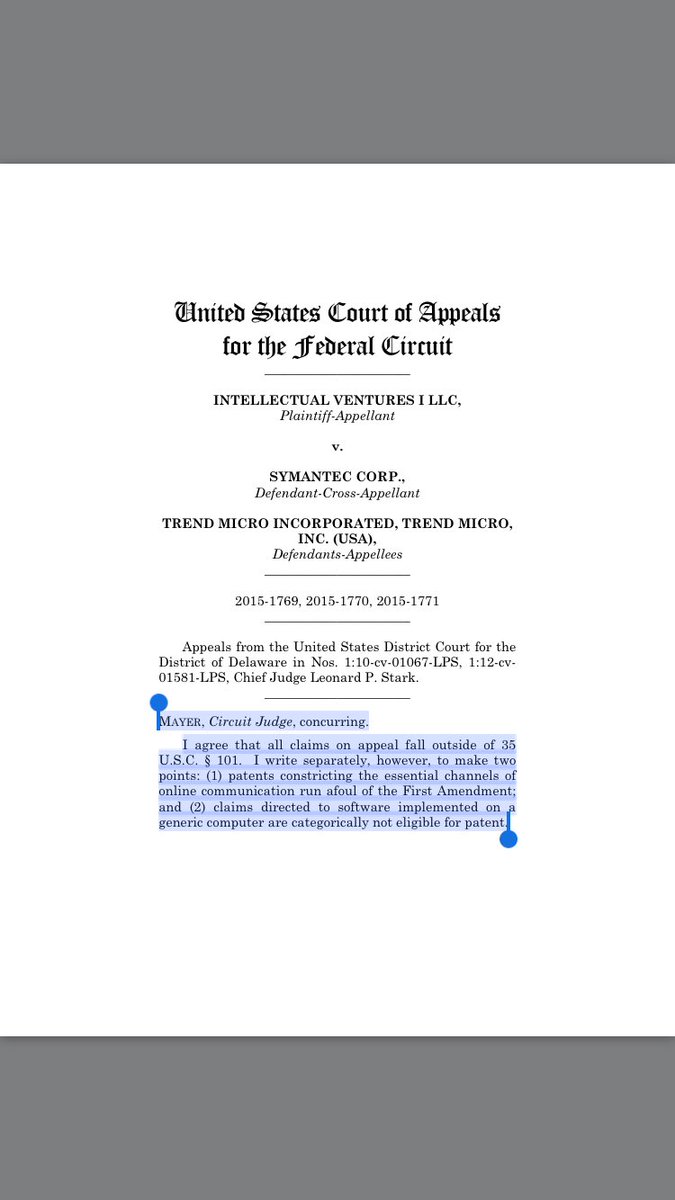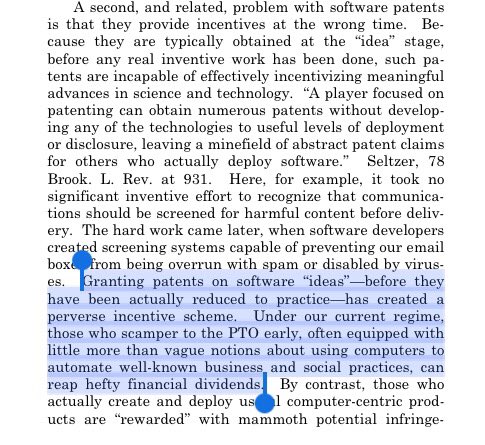


"Software developers do not need patents. It's an improper and truly unnecessary instrument of law."IAM spent well over a decade promoting a patent litigation culture everywhere in the world. This is IAM's bread and butter. What IAM meant by "webinar" the other day is marketing/lobbying. The word "licensing" refers to blackmail, extortion, and coercion with patents (otherwise a lawsuit gets filed). By contrast, the CCIA (Josh Landau in this case) bemoaned the situation, insisting that "[i]n Defending Against Patent Litigation, Even A Win Is A Loss" (except for the lawyers).
To quote:
So what we have is a lawsuit where, based on the statements in the complaint, the patent may not be valid, and where public information strongly suggests that the patent isn’t infringed.
Nonetheless, the Big Ten Network will have to spend money defending themselves from the lawsuit. And baseless patent assertions don’t just hurt large tech companies—they hit everyone, from entertainment companies like the BTN or Disney, to retailers and restaurants like Walmart and White Castle.
These suits, even if the defendant is successful in defending themselves, cost money. According to AIPLA’s 2017 survey, the median cost just to start defending a case with less than $1,000,000 at stake is around $25,000, and the median cost to get through the motions stage is around $250,000. If there’s more at stake? A case with more than $25,000,000 at risk might cost you around $140,000 just to get started, with the cost through the motions stage on the order of $1,700,000. That’s not even to get to trial.
All to defend yourself against a lawsuit that never should have occurred, based on a patent that never should have issued.
Scholars have long argued that copyright and trademark law have the potential to violate the First Amendment right to free speech. But in Patents and Free Speech (forthcoming in the Georgetown Law Journal), Professor Tun-Jen Chiang explains that patents can similarly restrict free speech, and that they pose an even greater threat to speech than copyrights and trademarks because patent law lacks the doctrinal safeguards that have developed in that area.
Professor Chiang convincingly argues that patents frequently violate the First Amendment and provides numerous examples of patents that could restrict speech. For example, he uncovered one patent (U.S. Patent No. 6,311,211) claiming a “method of operating an advocacy network” by “sending an advocacy message” to various users. He argues that such “advocacy emails are core political speech that the First Amendment is supposed to protect. A statute or regulation that prohibited groups from sending advocacy emails would be a blatant First Amendment violation.”
Perhaps the strongest counterargument to the conclusion that patents often violate free speech is that private enforcement of property rights is generally not subject to First Amendment scrutiny, because the First Amendment only applies to acts of the government, not private individuals. Although Professor Chiang has previously concluded that this argument largely justifies copyright law’s exemption from the First Amendment, he does not come to the same conclusion for patent law for two reasons.